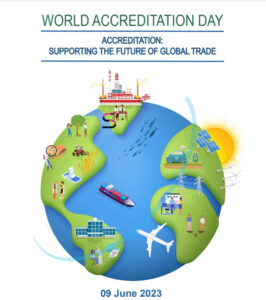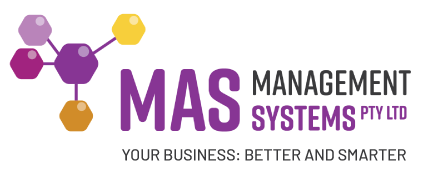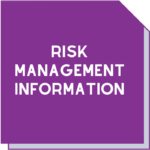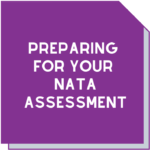6 Accreditation Basics you might not know
written by Maree Stuart

World Accreditation Day falls on 9th June each year. It was established by the International Accreditation Forum/ International Laboratory Accreditation Cooperation Joint General Assembly in 2007 to mark the importance of accreditation in conformity assessment.
This year’s theme is Accreditation: Supporting the Future of Global Trade and focuses on how accreditation supports the United Nations Sustainable Development Goals (SDGs) 1, 2, 3, 5, 8, 9, 10, 14, and 17. It’s great to see that the bigger picture is in the sights of notable accreditation organisations.
With Australian exports of goods and materials exceeding US$300B in 2021, the role of accreditation in maintaining customer confidence in Australian exports is critical – and big business. It’s important to know the basics of this system so we can understand why the system works as it does.
Defining accreditation
Accreditation is often a voluntary process through which an organisation, such as a lab, hospital, inspection organisation, or certification body demonstrates that it meets or exceeds specific standards of quality and commitment to continuous improvement. The process is carried out by an accrediting body, which is often through a peer-review process.
Elements of an accreditation system
There are some fundamental elements of any accredited system. When your lab or organisation seeks accreditation, these are the things you’re signing up for.
- Peer Review: Accreditation is often based on a peer-review process. Experts in the relevant field assess the organisation or program to determine whether it meets the established standards.

- Standards of Quality: Accrediting bodies establish standards of quality that organisations must meet or exceed to receive accreditation. These standards often focus on areas such as processes, qualifications, resources, customer services, and governance. Not all standards of quality used by accreditation bodies are ISO standards, such as in the area of healthcare accreditation, but many are.
- Continuous Improvement: Accreditation is not a one-time event but a cyclical process that requires organisations to demonstrate an ongoing commitment to improvement. Organisations are regularly re-evaluated (typically every few years) to ensure they continue to meet the standards and are making progress on their improvement plans.
- Transparency: The process of accreditation should be transparent and the outcomes made publicly available. This allows stakeholders, including prospective customers, the government, and the public, to make informed decisions based on the accreditation status of an organisation.
- Integrity: The accreditation process must be carried out with the highest level of integrity and objectivity. The accrediting body should be independent and free from undue influence from the organisations it accredits.
- Accountability: Accreditation holds organisations accountable to the public for meeting established standards of quality. It also holds the accrediting bodies accountable for carrying out their accreditation responsibilities effectively.
It’s through these basic elements that we get confidence in the system of accreditation. But how does an “outsider” like ChatGPT-3 view this system and how it supports global trade? We all know it’s the current oracle of all knowledge in the world!
 ChatGPT-3 is the most well-known of the AI Large Language Models. It was trained on a massive corpus of text and can understand and generate natural language responses with a high degree of accuracy. GPT 3 utilises the concept of a Generative Pre-trained Transformer 3, which is a deep learning model for Natural Language Processing.
ChatGPT-3 is the most well-known of the AI Large Language Models. It was trained on a massive corpus of text and can understand and generate natural language responses with a high degree of accuracy. GPT 3 utilises the concept of a Generative Pre-trained Transformer 3, which is a deep learning model for Natural Language Processing.
Here’s what it had to say……
How does the work of accreditation support global trade?
Accreditation plays a crucial role in supporting global trade by providing a framework for ensuring that products and services meet international standards and regulations. Accreditation is the process of assessing the competence, impartiality, and integrity of organizations that provide certification, testing, inspection, and calibration services.
Accreditation helps to build trust between trading partners by ensuring that the products and services being traded meet internationally recognized standards for quality, safety, and environmental protection. Accreditation also helps to reduce technical barriers to trade by ensuring that products and services meet the relevant technical regulations and standards in different countries.
Accreditation provides a level of assurance to both buyers and sellers that the products and services they are trading have been tested, inspected, and certified by competent and independent organizations. This helps to reduce the risk of product failures, recalls, and other quality issues that can have significant financial and reputational consequences for businesses.
Furthermore, accreditation helps to promote harmonization and consistency in international standards and regulations, which can facilitate the free flow of goods and services across borders. This is particularly important for small and medium-sized enterprises (SMEs) that may not have the resources to navigate complex international regulatory frameworks on their own.
Overall, accreditation plays a critical role in supporting global trade by providing a reliable framework for ensuring the quality, safety, and environmental sustainability of products and services traded across borders.
What do you think? Has ChatGPT-3 nailed it?
The Final Word
Now it’s my turn to give the final word on the topic of Accreditation: Supporting the Future of Global Trade. It’s straight out of my heart and my brain, with the only technical intervention being the keyboard and screen I use to create the words. So, here goes…….
 Accreditation is an important conformity assessment activity that provides confidence in the reliability and competence of an organisation’s outputs and systems. It’s a key part of this thing we call “Quality”. Without reliability in systems, gurus such as Dr Shewhart and Dr Deming tell us we can suffer from such unpredictable variability that poor quality outputs are produced. Competence is the thing that helps get things right more times than not. We need both for “good” quality.
Accreditation is an important conformity assessment activity that provides confidence in the reliability and competence of an organisation’s outputs and systems. It’s a key part of this thing we call “Quality”. Without reliability in systems, gurus such as Dr Shewhart and Dr Deming tell us we can suffer from such unpredictable variability that poor quality outputs are produced. Competence is the thing that helps get things right more times than not. We need both for “good” quality.
These elements of reliability, competence, and confidence make for efficient trading systems, whether those systems exist in your suburb, State, country, or globally. It means, for instance, that products do not have to be retested when they hit the shores of a trading partner or that we trust that the seller has systems to deal with problems that occur as a result of the buyer’s use of the product.
These days, much trade is done electronically and may not involve a tangible product. That’s the future of trade- one where there are intangible things of value accompanying the tangible things of value. The things we value as humans are measured more than by a simple financial metric. Clean air, shelter, edible food, access to clean drinking water, and meaningful work are increasingly also of value. And we trade in these things these days. It’s these latter things that the UN Sustainability Development Goals speak to.
With its role in supporting the confidence we have in these systems for the delivery of these other items of value, Accreditation has an important role in supporting the future of global trade. What we need to do is ensure that the scope of the global accreditation project covers all areas identified in the UN Sustainability Goals, is adaptable to the innovations that can enable efficient and effective trade systems, and that accreditation bodies are clear-sighted and transparent as to how their work tangibly contributes to the realisation of these goals.
If the whole accreditation world has you bamboozled, or even just a little confused, we are only a mouse click away! Get in touch, even if you just need to talk it out, at maree@masmanagementsystems.com.au.
AND, if you are stuck with understanding what is really required for your ISO 17025 accreditation, why not register for our next ISO 17025 Unpacked Training Course on 20 June? Register here before the Earlybird season ends today!
Remember, you don’t have to do this alone!
People who read this also enjoyed




